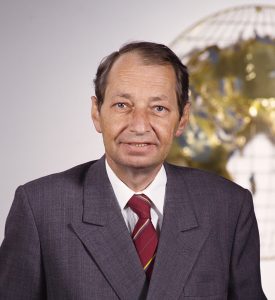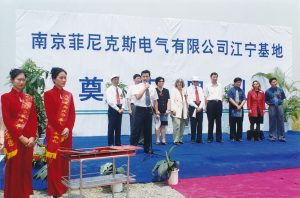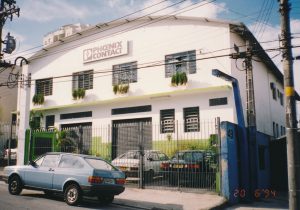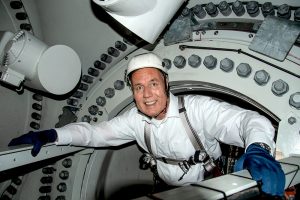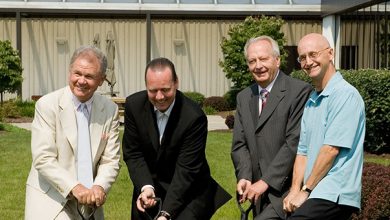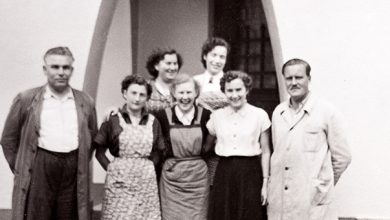Phoenix Contact and its subsidiaries – since the 1980s, what was once a regional industrial company has become a global player with a philosophy all its own that ensures sustainable success even in turbulent times. CEO Frank Stührenberg explains the background and perspective in an interview.
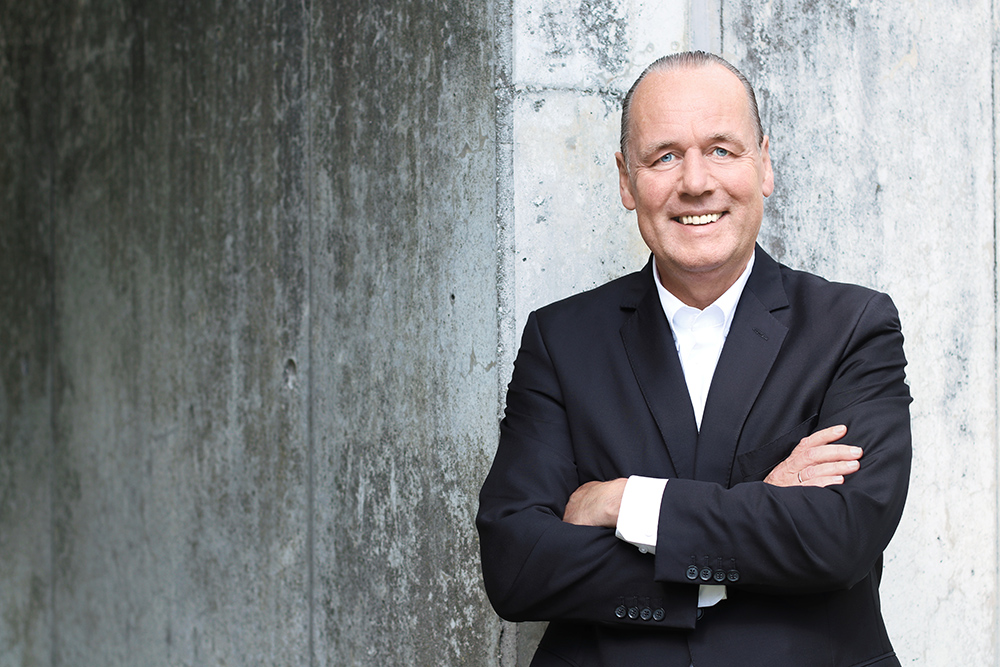
UPDATE: Mr. Stührenberg, you started as assistant to the management in 1992. Was Phoenix Contact already an internationally oriented company when you joined the company?
At that time, we were still strongly focused on business in Germany. We didn’t start expanding into foreign markets until the 1980s. At that time, a distinction was still made between the German business and exports, i.e. the rest of the world. At that time, exports were the responsibility of General Manager Gerd Eisert and were organized in such a way that they more or less mirrored the organization of the German headquarters.
UPDATE: How intensive were the communication and exchange with the emerging subsidiaries?
(smiles) Well, let’s say it was quite different from today. Our self-image at the time was that we develop great products here in Germany and make the world happy with them. Just the topic of an international business trip was still far from being a matter of course.
UPDATE: Certainly not easy for the subsidiaries to then find a hearing in Blomberg.
I can still remember very clearly a description of an employee in the office. When he came to his desk after the lunch break, there were three notes on his screen asking him to call back. The first call was from a sales representative in Baden-Württemberg, the second from a well-known colleague in Berlin, and the third from an unknown employee in Italy. In English. And then guess what the order was in which they called back. Of course, that wasn’t easy for the colleague from abroad.
UPDATE: When did a rethink start here?
Our major customers were becoming increasingly international in their projects. Customers like Volkswagen or Siemens were already operating all over the world. So we introduced international key account management in the mid-1990s. That was the first time it was said that a customer, no matter where he was, would be coordinated through a central organization. That was my first responsible role, in which I also traveled with Gerd Eisert from time to time.
UPDATE: Were there also difficult situations in this internationalization process?
(laughs) More than one. That always sounds so beautifully smooth in retrospect. For example, I experienced a personal trial by fire myself in 1997. Our China business was in trouble after just four years. We had opted for local management in the tried and tested manner, reinforced by an external manager. But he didn’t fit in with us and eventually left. So we came up with the idea that I should support. Not with a quick visit, but in a longer stay to really understand the country and its people and to provide the headquarters’ perspective. At that time, China was a very different country than it is today, and they were not prepared for Westerners. I was there for three months. And we actually succeeded in stabilizing a lot of things together with our Chinese colleagues. We now employ 2,500 people there in one of our most productive and successful subsidiaries.
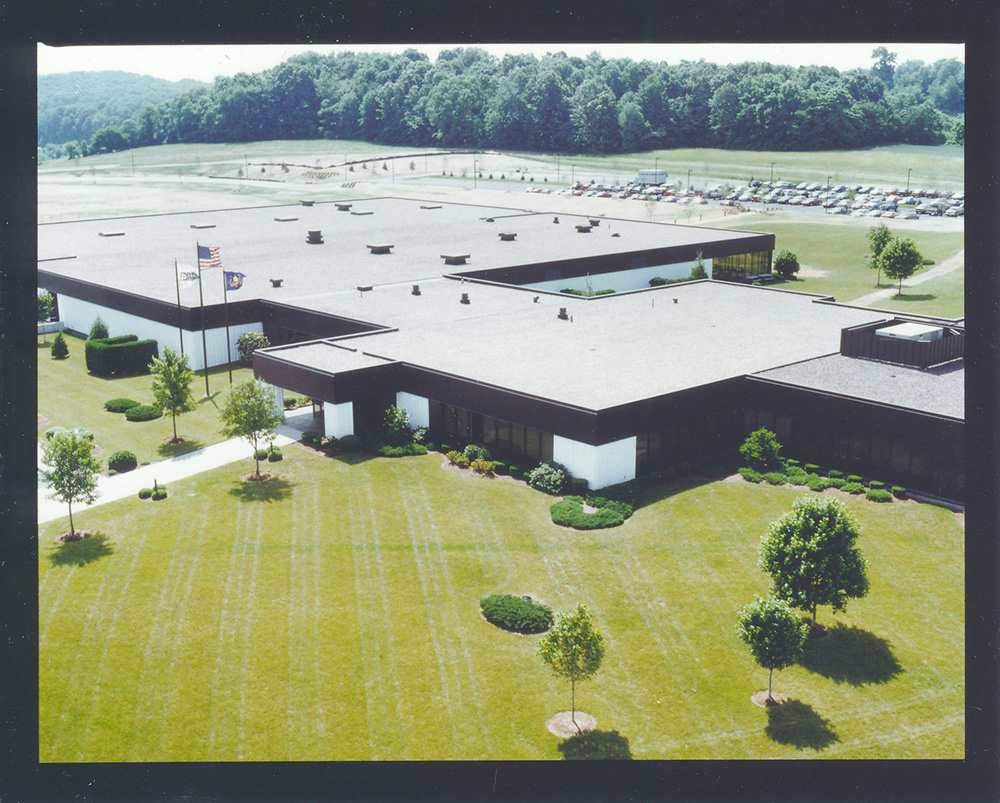
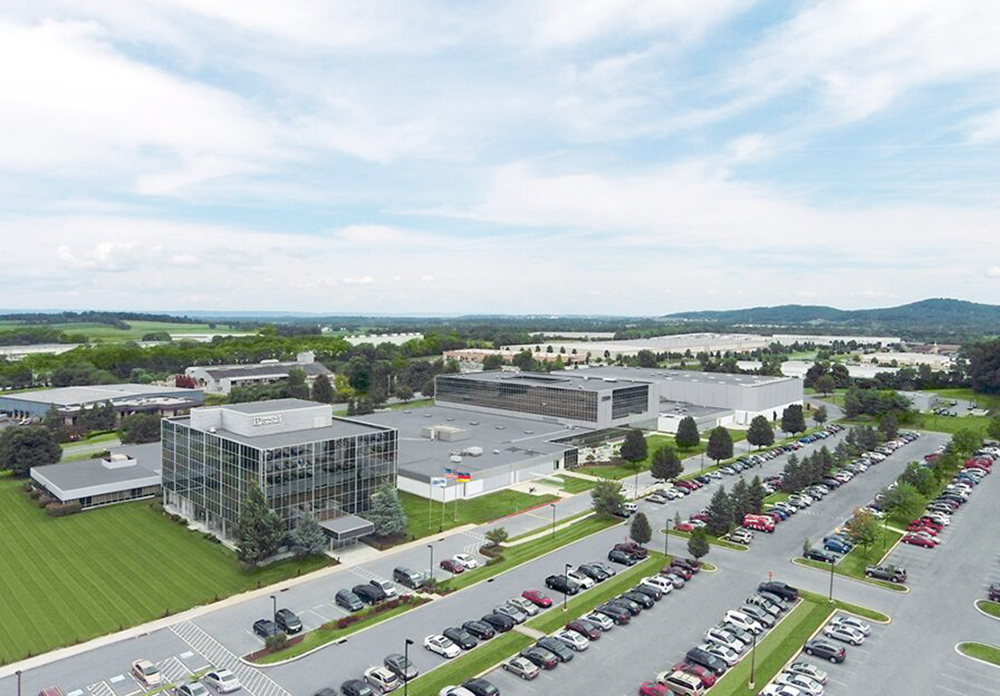
UPDATE: Think global, act local – after all, this principle is self-evident today.
Right, that was already Gerd Eisert’s motto back then. And that was and still is one of the most convincing arguments when it comes to setting up subsidiaries. First of all, we are looking for a general manager who knows the industry and the country very well. And, of course, he or she must also fit in with us and our corporate philosophy.
Once we have found this person, we put him or her in a position to operate with a local team on site. It always takes a little time for a self-confidence to grow from these beginnings that great things are actually possible with the terminal that seems boring at first glance. That was also the case in China back then.
UPDATE: Then Gerd Eisert withdrew.
One day around the turn of the millennium, I was head of German sales at the time, Klaus Eisert came to me and asked if I could take over tasks from his brother that he could no longer manage due to health reasons. It was not an easy situation to succeed a man like Gerd Eisert in a family business like ours.
After all, many sovereigns had the privilege of personal access to Gerd Eisert and thus to one of the owners. But together with Klaus Eisert, we managed to make it work.
UPDATE: This then also led to a new organization of foreign activities?
Correct. From then on, we spoke of international sales and sales in Germany. This terminology still exists today. We agree that commercial processes and management, i.e. organizational principles, must be uniform. As already described, on-site activities are carried out under the company’s own responsibility.
UPDATE: Does this independence also reach the customer?
Absolutely. For example, it will probably be decades before a control cabinet building company in southern Spain has no problem calling an English-speaking Phoenix Contact call center in India to complain about his invoice. It doesn’t help us if the labor there costs only a fraction of what Spanish employees cost us. The customer is annoyed and questions his relationship with us.
Can we risk jeopardizing a long-term relationship for a small financial advantage? Of course not. Local independence is a very important key to sustainable success in the countries.
UPDATE: Are there regions where we will position ourselves more strongly in the future?
If it makes sense to get involved in projects, then yes. There will definitely be something developing in northern Africa around renewable energy, liquefied natural gas (LNG) and hydrogen. We are watching this very closely at the moment and are also intensifying our networks, for example in the direction of local research institutes or universities. South and Central America are also very exciting regions where there are currently many developments in the field of energy generation.
If we look at Asia, we will significantly expand India, which is due to the enormous market potential.
UPDATE: The world is now experiencing one crisis after another. Supply bottlenecks, protectionist foreclosure of markets, Corona, energy and climate crisis – how do we deal with these developments?.
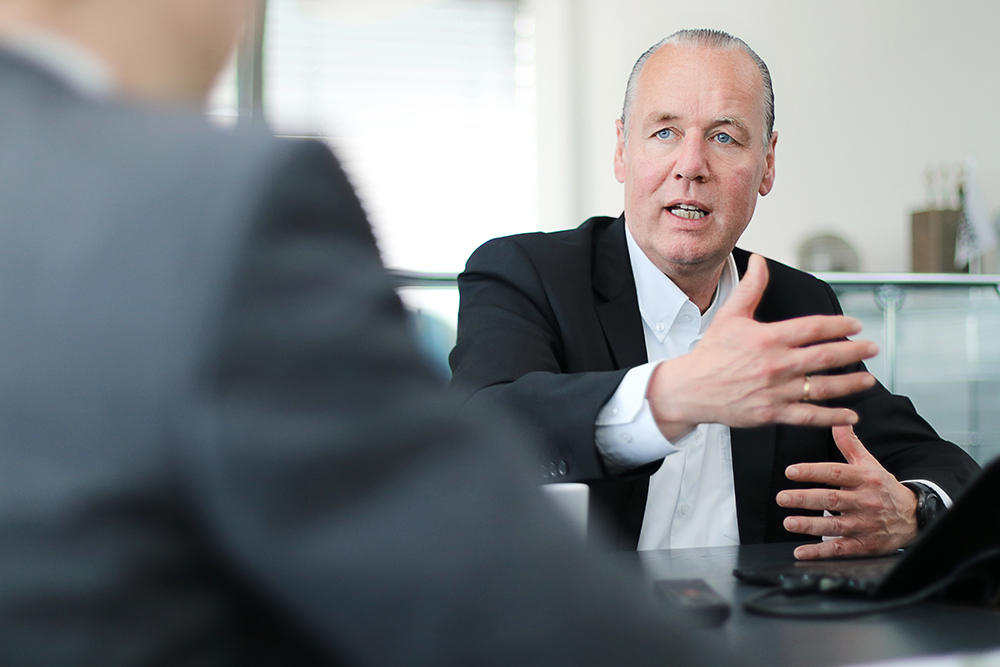
Of course, we monitor these processes very closely. We strive to make our supply chains as robust as possible. Do we manufacture exclusively at one location, say in China, a product that is also needed in many other countries? We will certainly change that and duplicate manufacturing elsewhere or bring it back to Europe. After all, we still have more than 70 percent of our value creation here in Europe. For a long time, many experts agreed that this was not competitive enough in perspective, because it was said that we would have to achieve much more value creation in low-cost regions such as India and China. Today, I would say that our current situation in all the crises is not so bad precisely because of this philosophy.
And the design of supply chains is increasingly driven by the aspect of the CO2 footprint. There is little we can do about basic components and their procurement, such as plastic or metal. But we can avoid useless long logistics distances with smart planning. Our expectation is that the issue of delivery time versus the issue of CO2-footprint will soon tip. You can also be successful without everything being immediately available, i.e. just in time in stock. Or that you say there must not be a single box left in production.
My firm opinion is: the future of our grandchildren is more important than immediate availability.
